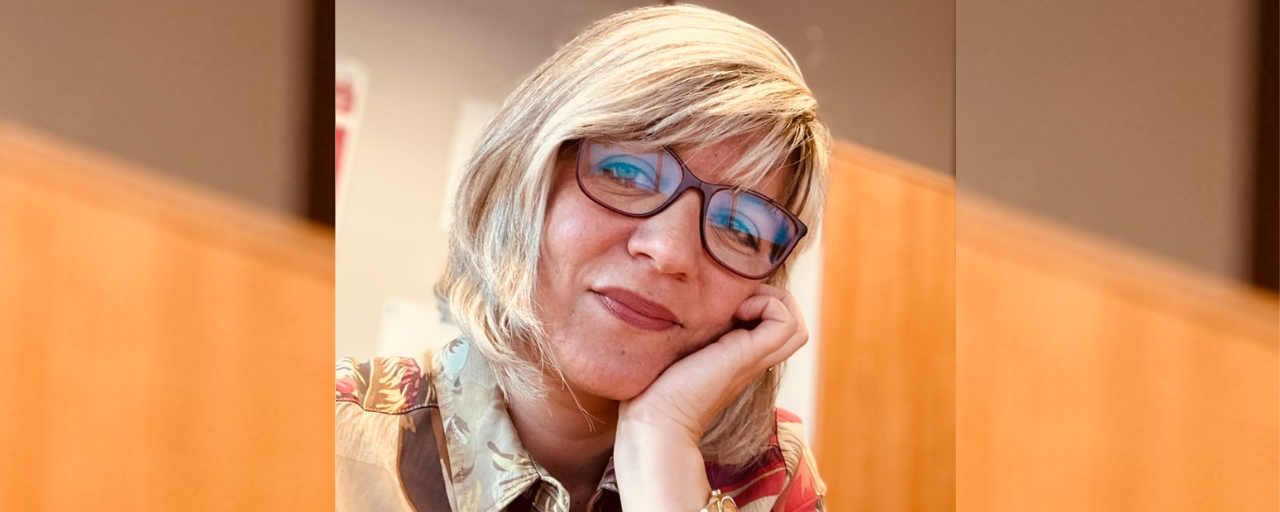A Business Angel of Italian Angels for Growth (IAG), Mentor and advisor to innovative startups, Antonella is also the author of scientific articles on the topics of Artificial Intelligence and Software Engineering, and of educational and popular publications on issues of innovation, project management, and sustainability. Let's get to know her better.
Today you are Innovation & Sustainability Manager in a large Italian manufacturing company. Can you tell us what has been your career path to date?
My career path has been anything but a linear path. After graduation, I had various work and training experiences that gave me the opportunity to travel abroad and test myself in different fields, filling different roles. A trajectory that rather than a climb to a destination, we can define as a journey between episodes, in which I pursued employment opportunities following my passions and aptitudes.
When I entered the world of work, I certainly did not have a well-defined professional figure in mind. Rather, I must say that over time I have built my current profession precisely because of the various experiences I have had and the projects I have been involved in. Looking back on this path, however, I can recognize a professional vocation, precisely because of the traces and clues that emerge along all the experiences I have lived. Traces and clues linked precisely by a single common thread that has always been an interest in technological innovation and digital technologies.
I started out in the university world studying digital technologies for R&D purposes, and then understanding how to leverage them to pursue innovation and business development opportunities. And today I find myself looking further ahead by imagining how digital technologies can be profitably deployed to address issues of environmental, social and economic sustainability.
How did you get into the startup world and how did the decision to become a business angel with Italian Angels for Growth come about?
I learned about the world of Startups during my experience in Silicon Valley in 2009, where I had gone on a Fulbrigth fellowship at Santa Clara University. When I left for the United States, I had recently finished my Ph.D. and did not have much awareness of what Startups were or what other players in the ecosystem could foster Startup development through funding.
Back from Silicon Valley, I began to make contact with the Italian innovation ecosystem, first working with a Startup and then moving to the corporate world dealing with Open Innovation initiatives to foster collaboration with Startups, incubators, accelerators, and investment funds.
The decision to join IAG was based on the idea of getting more in touch with the investor ecosystem and, from a different perspective than the one I am currently in, better understand its dynamics and maybe build a new professionalism on it. And for this I have to thank IAG members Carolina Gianardi and Anna Amati who listened to my requests and introduced me to the association, thus indulging my desire to participate in IAG as a full member.
How have you integrated and promoted the concept of diversity and inclusion in your professional initiatives?
My international experiences and varied career path have allowed me to broaden my horizons, open myself to confrontation with people of different nationalities, collaborate with multidisciplinary teams, and participate in solving challenging problems. In all the contexts in which I have ventured, I have always tried to express myself clearly and honestly, and I have tried to contribute to the challenges posed to the best of my ability, without questioning my own identity and background, and the identity and background of the other team members with whom I have collaborated.
I always try to maintain this approach in every professional initiative in which I am involved, inviting the people with whom I collaborate to do the same as well, so that each of them can have the opportunity to reach their full potential. Involvement, valuing, sharing, and listening are all key to ensuring high levels of inclusion and thus productivity in work groups.
What does it concretely mean to put people at the center of business dynamics and what are the tangible benefits in the context of the organization and professional relationships?
In my view, putting people at the center of business dynamics means focusing on people's well-being, development, and involvement as a central element of business strategies and decisions and on which to leverage to bring the company to high levels of competitiveness. To achieve this, organizations should first and foremost recognize the importance of individuals as a key resource for organizational success and should strive by implementing a range of initiatives and tools to develop and enhance the emotional intelligence of their employees as a key resource for organizational success.
In general, emotional intelligence is the ability to recognize, manage and use one's own emotions and those of others. People with emotional intelligence are able to easily identify the emotions felt by themselves and others and are also able to regulate their emotions by using them to accomplish various tasks and responsibilities while helping others to do the same.
The importance of emotional intelligence in the workplace is clear: it benefits employees, as it improves corporate well-being through building trusting relationships among colleagues, and it promotes professional performance through a higher level of optimism and confidence in one's individual abilities; it becomes essential for leaders because it enables them to establish constructive relationships with their co-workers, grasping, by leveraging their intuition, the emotional currents that are established among their team members by enhancing the positive ones and deviating from the destructive ones.
Emotional intelligence also plays a significant role in promoting diversity and inclusion in the workplace alluded to in the previous question. Multicultural and interdisciplinary teams must learn to understand each other effectively, express their thoughts and opinions, and adapt to individual differences. Similarly, employees must manage increasingly complex interactions with customers, colleagues, and co-workers from around the world. Therefore, the emotional ability to empathize, engage and work with people from other social groups improves business performance and effectiveness in these cross-cultural situations.
You describe yourself as a "multifacetedly receptive" person. What are the most significant challenges you have faced in your career and what are the accomplishments you are most proud of?
The term "multifacetedly receptive" perfectly reflects my being a person who is open, versatile, and able to welcome and understand a variety of ideas, opinions, experiences and perspectives. This characteristic is based on my predisposition to explore, learn, and adapt to different situations and points of view.
There are many projects in which I have been involved and for which I feel proud of my achievements. Undoubtedly the most significant experience of my career was the one I made in Silicon Valley. There I had the opportunity to engage with very interesting and more multifaceted people than myself, who inspired and stimulated me to get further involved. Of all the subsequent work experiences that followed, perhaps, I would say that the best achievement I made was that I was able to untangle myself from difficulties by leveraging my strengths and learning from mistakes. In this journey of evolution, the greatest challenge has also been to not lose heart and to recognize my own gaps in knowledge and competence, which I have tried to fill by giving myself further effort by investing in my education.
In all these years I have, therefore, come to the realization that it takes time to build a career, but it is never too late! There is no miracle solution. However, finding mentors and drawing inspiration from people in your network can be helpful in overcoming the inevitable hiccups of an ambitious career path.
What advice would you like to give to the younger generation, particularly women, who aspire to a career in engineering and innovation?
My advice to the younger generation, and especially to women who aspire to a career in engineering and innovation, is not to be afraid of one's ambitions and to nurture one's passions without fearing the judgment of others, or worse, worrying about failure.
The best tools for nurturing one's ambitions and thus finding one's place in the world of work are, precisely, imagination, curiosity, passion, and desire. Elements, however, that alone are not enough. These must necessarily be complemented by continuous study and development of new knowledge and skills, especially in technology.
Continuous learning, emotional involvement and fun constitute a unique recipe for defining and maintaining an objective professionalism, without gender connotations, a foundational element for disentangling oneself in the world of work without leaving room for doubt about one's abilities and skills.








